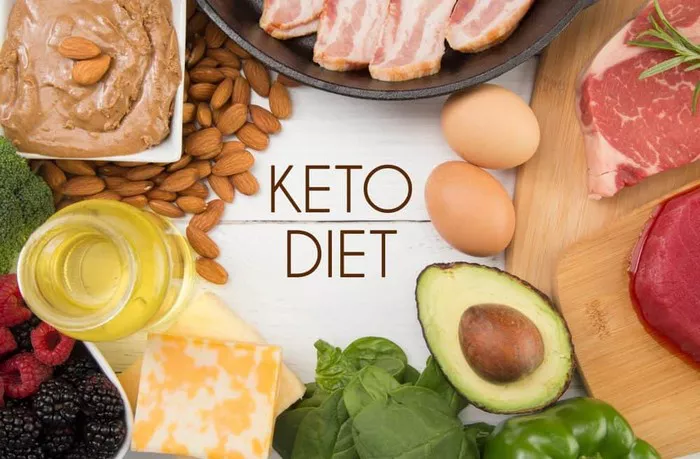The ketogenic diet, or keto diet, has gained popularity in recent years for its purported weight loss and health benefits. However, for breastfeeding mothers, embarking on any dietary regimen prompts concerns about how it might affect both their own health and the well-being of their nursing infants. This article aims to delve into the safety and feasibility of adopting a keto diet while breastfeeding, examining its potential benefits and risks.
Understanding the Keto Diet:
Before evaluating its safety during breastfeeding, it’s crucial to understand what the keto diet entails. The ketogenic diet is a high-fat, low-carbohydrate eating plan designed to induce a metabolic state known as ketosis. In this state, the body primarily burns fat for fuel instead of carbohydrates, leading to weight loss and various metabolic changes.
A typical keto diet consists of approximately 70-75% fat, 20-25% protein, and only 5-10% carbohydrates. This composition drastically reduces the body’s intake of sugars and starches, forcing it to rely on fat stores for energy production.
Nutritional Needs During Breastfeeding:
Breastfeeding mothers have unique nutritional requirements due to the demands of lactation. Producing breast milk requires additional calories, nutrients, and hydration to support both maternal health and infant growth. Essential nutrients such as protein, vitamins, minerals, and omega-3 fatty acids are vital for the mother-infant dyad’s well-being.
Health authorities recommend that breastfeeding women consume a balanced diet rich in fruits, vegetables, whole grains, lean proteins, and healthy fats. Adequate hydration is also paramount for maintaining milk supply and preventing dehydration.
Safety Considerations for Breastfeeding Mothers:
When considering the safety of the keto diet for breastfeeding mothers, several factors must be taken into account:
1. Impact on Milk Supply: One concern regarding the keto diet’s safety is its potential effect on milk production. Some women may experience a decrease in milk supply when drastically reducing carbohydrate intake. Carbohydrates play a role in stimulating prolactin, the hormone responsible for milk production. Therefore, a sudden shift to a low-carb diet might affect lactation negatively.
2. Nutrient Deficiencies: Another consideration is the risk of nutrient deficiencies on a keto diet. While high in fats, the ketogenic diet may lack essential vitamins and minerals found in fruits, vegetables, and whole grains. Deficiencies in nutrients such as folate, vitamin C, and fiber could impact both maternal health and the quality of breast milk.
3. Metabolic Changes: Adopting a ketogenic diet induces significant metabolic changes in the body, including ketosis. While this metabolic state is generally safe for most adults, its effects on breastfeeding mothers and infants remain understudied. Concerns arise regarding potential alterations in milk composition and the transfer of ketone bodies to the nursing infant.
4. Hydration Status: Adequate hydration is crucial for breastfeeding mothers to maintain milk supply and prevent dehydration. The ketogenic diet’s diuretic effect, coupled with the increased risk of electrolyte imbalances, raises concerns about hydration status, especially in the postpartum period.
Potential Benefits of the Keto Diet for Breastfeeding Mothers:
Despite these concerns, some proponents argue that the keto diet may offer benefits for breastfeeding mothers, including:
1. Weight Loss: For women looking to shed postpartum weight, the ketogenic diet’s ability to promote fat loss may be appealing. However, it’s essential to prioritize gradual weight loss and ensure adequate nutrient intake to support breastfeeding and maternal health.
2. Stable Blood Sugar: By minimizing carbohydrate intake, the keto diet can help stabilize blood sugar levels and reduce insulin spikes. This may be beneficial for women with gestational diabetes or insulin resistance, although individual responses vary.
3. Increased Satiety: The high-fat content of the keto diet can promote feelings of fullness and satiety, which may help breastfeeding mothers manage hunger cravings and maintain energy levels throughout the day.
Guidelines for Safe Implementation:
If a breastfeeding mother decides to pursue a ketogenic diet, it’s essential to do so under the guidance of a healthcare professional. Here are some guidelines to consider:
1. Gradual Transition: Instead of abruptly starting a keto diet, gradually reduce carbohydrate intake while monitoring its effects on milk supply, energy levels, and overall well-being.
2. Focus on Nutrient Density: Prioritize nutrient-dense foods such as leafy greens, non-starchy vegetables, nuts, seeds, avocados, and healthy fats like olive oil and coconut oil. Including a variety of foods ensures adequate intake of essential vitamins and minerals.
3. Stay Hydrated: Drink plenty of water throughout the day to prevent dehydration and maintain optimal milk production. Electrolyte supplementation may be necessary, especially during the initial stages of ketosis.
4. Monitor Milk Supply: Pay close attention to changes in milk supply and infant feeding patterns. If there are concerns about insufficient milk production, consult with a lactation consultant or healthcare provider promptly.
5. Listen to Your Body: Every woman’s experience with the keto diet while breastfeeding is unique. Listen to your body’s signals and adjust your dietary approach accordingly. If you experience adverse effects or discomfort, consider modifying your diet or seeking professional guidance.
Conclusion:
In conclusion, the safety of the keto diet for breastfeeding mothers remains a topic of debate within the healthcare community. While some women may experience benefits such as weight loss and blood sugar stabilization, others may encounter challenges such as decreased milk supply and nutrient deficiencies. It’s essential for breastfeeding mothers to weigh the potential risks and benefits carefully and consult with a healthcare provider before embarking on any dietary regimen, including the ketogenic diet. By prioritizing nutrient density, gradual transition, hydration, and close monitoring of milk supply, breastfeeding mothers can make informed decisions about their dietary choices while supporting their own health and the well-being of their infants.



